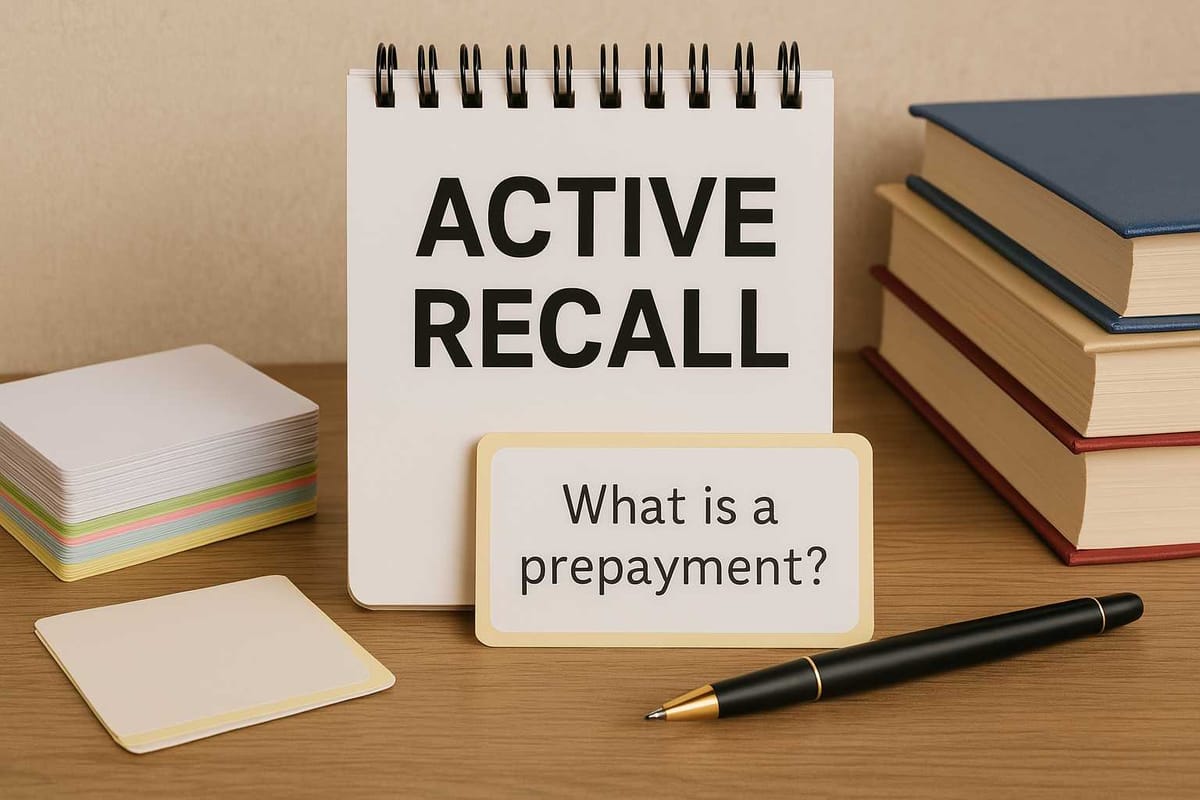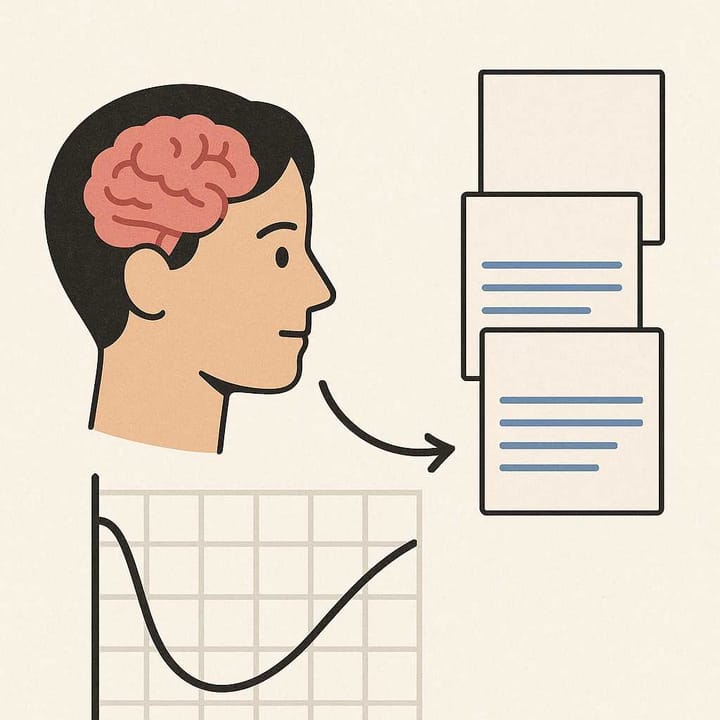Mastering Active Recall: The Secret Weapon for Exam Success
Discover how active recall can transform your study routine, boost information retention, and skyrocket your exam performance. Say goodbye to passive learning and hello to academic success!

Active recall is a game-changing study technique that's revolutionising the way students prepare for exams.
Gone are the days of mindlessly re-reading notes and hoping for the best. This powerful method focuses on retrieving information from your memory, rather than simply reviewing it.
By challenging your brain to actively recall facts and concepts, you're strengthening neural pathways and dramatically improving your ability to remember crucial information when it matters most.
In this blog post, we'll explore the ins and outs of active recall, providing you with practical strategies to implement this technique in your own studies. These tips will help you maximise your learning potential and approach your exams with confidence.
The Power of Flashcards: Not Just for Primary School
When you hear the word 'flashcards', you might be tempted to dismiss them as childish or outdated. However, these simple yet effective tools are experiencing a renaissance in the world of adult learning, and for good reason. Flashcards are the perfect vehicle for implementing active recall in your study routine.
Creating flashcards is straightforward: on one side, write a question or prompt, and on the reverse, provide the answer or relevant information. The key to their effectiveness lies in how you use them. Rather than passively flipping through the cards, challenge yourself to recall the answer before checking the reverse side. This process of retrieval strengthens your memory far more effectively than simply reading the information.
For example, if you're studying for the Accounting Certificate Level module, instead of reading the Workbook over and over, create a flashcard with the question "What is a prepayment?" on one side and the definition and double entries on the other. When reviewing, try to recall the full definition and double entries before flipping the card. This active engagement with the material will help cement the concept in your long-term memory.
Don't limit yourself to just definitions and facts. Flashcards can be used for formulas, exam techniques, key dates, and even complex concepts broken down into smaller, manageable chunks. The versatility of flashcards makes them an invaluable tool for learners across all disciplines.
Self-Testing: Your Personal Exam Simulator
Self-testing is like a dress rehearsal for your actual exam, minus the nerve-wracking environment. This method involves regularly assessing your knowledge through various forms of quizzes and practice exams. By incorporating self-testing into your study routine, you're not only reinforcing your understanding of the material but also familiarising yourself with the exam format and identifying areas that need more attention.
To implement self-testing effectively, set aside dedicated time in your study schedule specifically for this purpose. This could be at the end of each study session or at regular intervals throughout your revision period. Create a diverse range of question types to challenge yourself, including multiple-choice, short answer, and even oral explanations as if you were teaching the material to someone else.
Remember, the goal of self-testing is not to achieve perfect scores right away. It's about identifying gaps in your knowledge and understanding, so you can focus your efforts where they're most needed. Embrace mistakes as learning opportunities and use them to guide your future study sessions.
The Buddy System: Collaborative Learning for Enhanced Recall
While individual study is crucial, partnering with a fellow student can take your active recall practice to the next level. The buddy system introduces an element of accountability and provides opportunities for deeper engagement with the material through discussion and explanation.
To implement this approach, find a study partner who is preparing for the same exam or studying similar material. Schedule regular sessions where you can quiz each other on various topics. Take turns being the 'examiner' and the 'examinee'. When it's your turn to ask questions, challenge your partner to provide thorough explanations. When answering, strive to articulate your understanding as clearly as possible.
This collaborative approach offers several benefits. Firstly, explaining concepts to someone else is an excellent way to solidify your own understanding. If you can teach it, you truly know it. Secondly, hearing how your study buddy approaches different topics can provide new perspectives and insights you might have missed. Thirdly, many students report that the process of working with another purpose really helps cement the knowledge in their mind. Lastly, the social aspect of studying with a partner can make the process more enjoyable and help maintain motivation during long revision periods.
Leveraging Technology for Active Recall
In today's digital age, numerous tools and platforms are available to support active recall techniques. Online learning platforms often incorporate features that align perfectly with this study method. For instance, many platforms offer short self-test questions after each learning module, allowing you to immediately reinforce new information. This is something that we implement in all our content.
Mobile apps dedicated to flashcards and spaced repetition can make it easy to review material on the go. These apps often use algorithms to optimise your review schedule, presenting cards at intervals designed to maximise retention.
Additionally, online communities and forums can serve as virtual study groups, where you can engage in discussions, ask questions, and even find accountability partners. These digital spaces provide opportunities for collaborative learning and active recall practice, even when face-to-face meetings aren't possible.
Embracing active recall techniques can transform your approach to studying, making it more engaging, effective, and tailored to how your brain actually learns. By incorporating flashcards, self-testing methods, collaborative learning, and digital tools into your study routine, you'll be well-equipped to tackle even the most challenging exams with confidence.
Remember, the key to success with active recall is consistency and engagement. Don't just go through the motions – challenge yourself, embrace the process of retrieval, and watch as your ability to recall information improves dramatically over time.




Comments ()